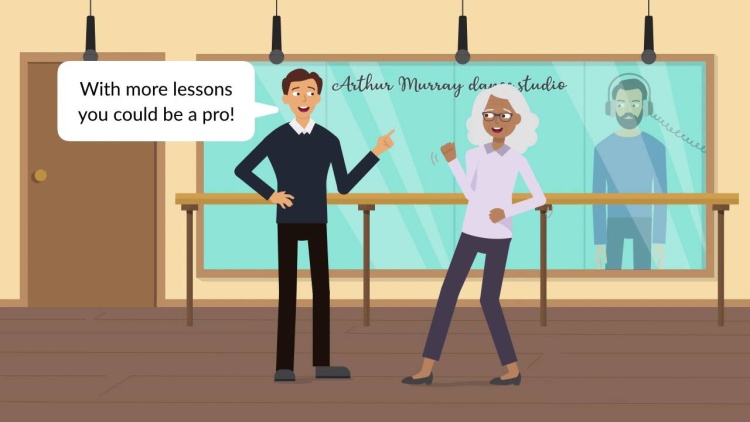Syester v. Banta
Iowa Supreme Court
133 N.W.2d 666 (1965)
- Written by Sarah Larkin, JD
Facts
Syester (plaintiff) was a lonely widow in her mid-60s when she began taking dance lessons at Arthur Murray Studio, owned by Mr. Theiss and others (the owners) (defendants). The owners counseled instructors to use emotional sales techniques with customers to persuade them to buy lessons. Syester’s instructor falsely assured her that she could become a professional dancer, and awarded her in one year several dance medals that typically took up to a decade to earn. Syvester bought over 4000 hours of lessons at a cost of over $29,000, including three lifetime memberships. After the owners fired Syester’s instructor, Syester quit the studio and sued the owners to get her money back. The owners rehired her instructor, who persuaded Syester to drop her lawsuit and to sign a settlement and release of all claims for a refund of $6,090, much less than her unused balance. Syester then signed a second release promising a refund of $4,000, which was never paid. Syester sued again, alleging fraud and misrepresentation in connection with the settlement and release and the dismissal of the previous lawsuit. The trial court awarded Syester $14,300 in actual damages and $40,000 in punitive damages. The court of appeals affirmed. The owners appealed to the Iowa Supreme Court.
Rule of Law
Issue
Holding and Reasoning (Snell, J.)
What to do next…
Here's why 909,000 law students have relied on our case briefs:
- Written by law professors and practitioners, not other law students. 47,100 briefs, keyed to 997 casebooks. Top-notch customer support.
- The right amount of information, includes the facts, issues, rule of law, holding and reasoning, and any concurrences and dissents.
- Access in your classes, works on your mobile and tablet. Massive library of related video lessons and high quality multiple-choice questions.
- Easy to use, uniform format for every case brief. Written in plain English, not in legalese. Our briefs summarize and simplify; they don’t just repeat the court’s language.





